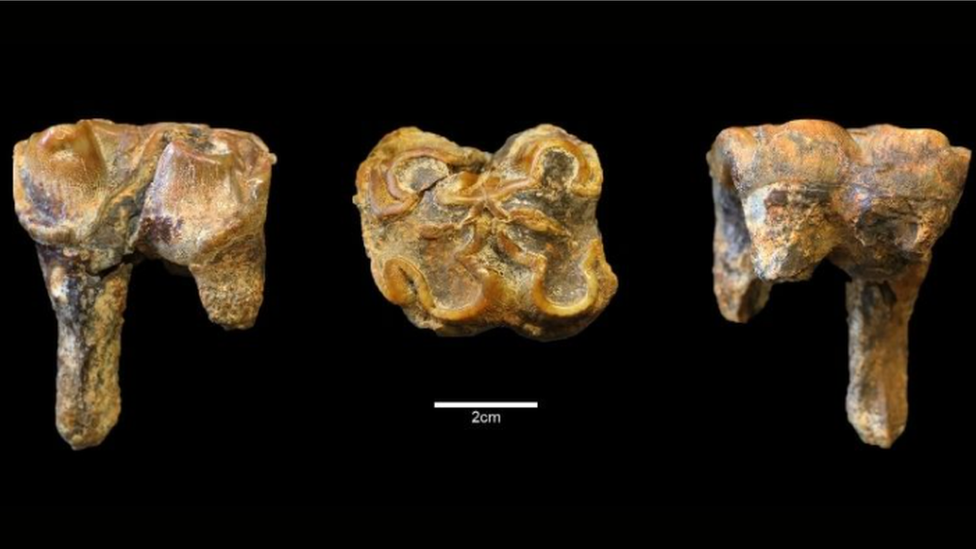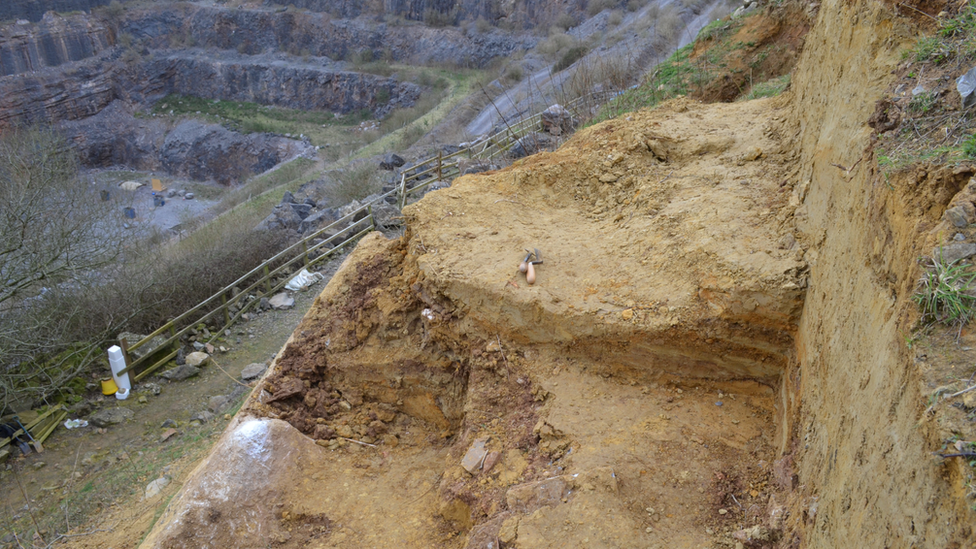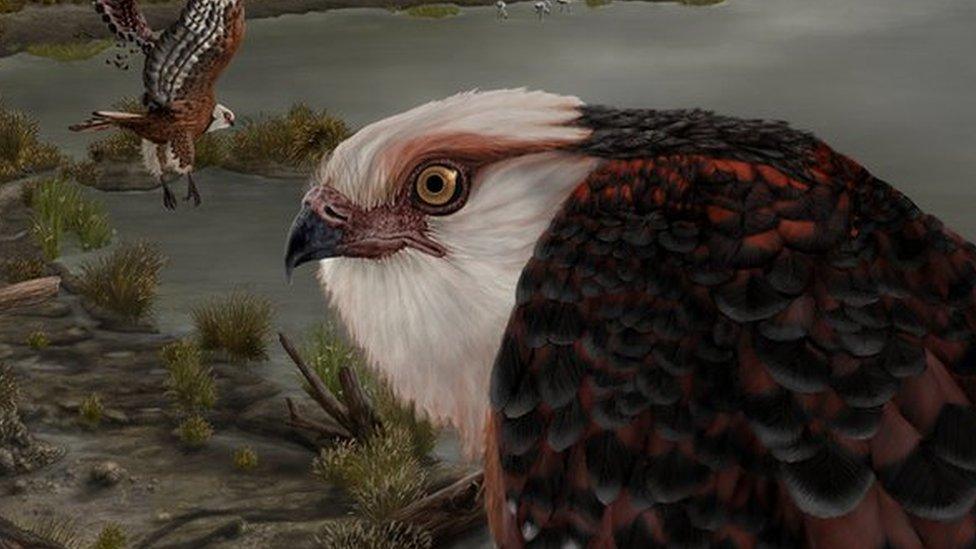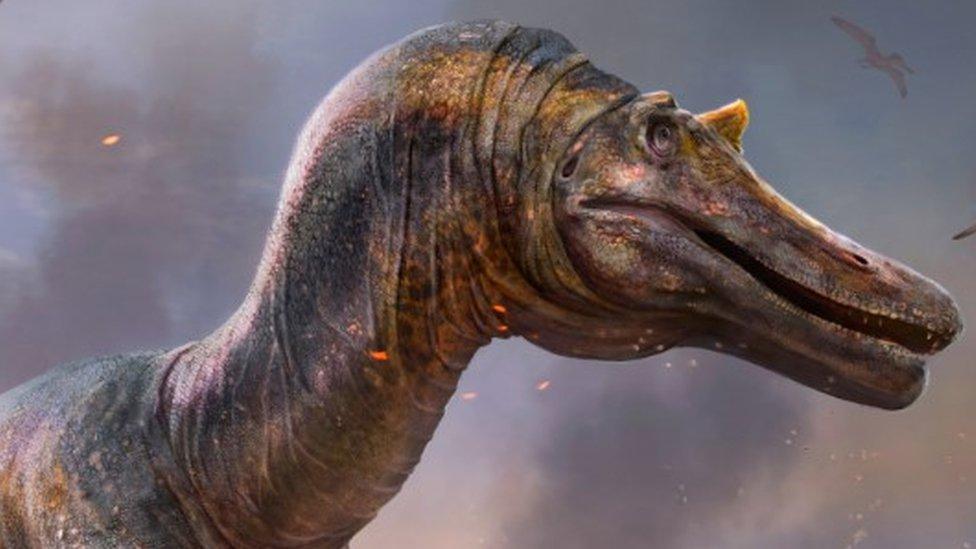University of Leicester scientists find first-known British hippo tooth
- Published

The tooth has been analysed by scientists at the University of London
Scientists say they have unearthed evidence hippos roamed Britain much earlier than previously thought.
Excavations at Somerset's Westbury Cave, led by University of Leicester PhD student Neil Adams, uncovered a million-year-old hippo tooth.
It is thought the tooth belonged to an extinct species of hippo found in Europe during the Ice Age.
Mr Adams said it was the first known hippo fossil from any site in Britain older than 750,000 years.
'Very exciting'
The study, published in the Journal of Quaternary Science and co-authored with researchers from Royal Holloway, University of London, said the tooth was identified as belonging to an extinct species of hippo called Hippopotamus antiquus.
The species was much larger than the modern African hippo and more reliant on aquatic habitats than its living relative.

The team of palaeobiologists were examining sediment at the quarry site
Neil Adams, PhD researcher in the Centre for Palaeobiology Research at the University of Leicester and earth collections project officer at the Oxford University Museum of Natural History, said: "It was very exciting to come across a hippo tooth during our recent excavations at Westbury Cave.
"It is not only the first record of hippo from the site, but also the first-known hippo fossil from any site in Britain older than 750,000 years.
"Erosion caused by the coming and going of ice sheets, as well as the gradual uplift of the land, has removed large parts of the deposits of this age in Britain.
"Our comparisons with sites across Europe show that Westbury Cave is an important exception and the new hippo dates to a previously unrecognised warm period in the British fossil record."
He added hippo remains of this age had been found in Germany, France and the Netherlands but he believed this was the first example found in north-west Europe.

Follow BBC East Midlands on Facebook, external, on Twitter, external, or on Instagram, external. Send your story ideas to eastmidsnews@bbc.co.uk, external.
- Published28 September 2021

- Published29 September 2021
